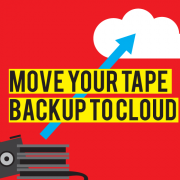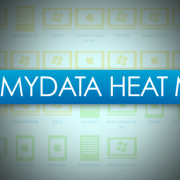Security Features to Consider When Migrating to Hybrid Cloud
Recent trends suggest that Hybrid Cloud is the way to go. And why not? It allows you to make the most of your in-house IT resources with a robust public cloud system. You can also easily alternate workloads between both environments.
According to the research firm IDC, the global cloud market — which includes private, public and hybrid cloud systems — would cross $200 billion by 2018. This should give us an idea of the potential the technology has. However, before you jump in with both feet, it is imperative that you overcome the obstacles of data security first.
Security Expertise
Private cloud storage allows you to have full control on the data mobility and security. You can install and customize cloud security features according to your requirements, and have a peace of mind that everything is how it should be. Most importantly, you decide who should be assigned the task of network monitoring and preventing data breaches.
Finding the right Hybrid Cloud partner, who sees eye to eye and can offer the level of virtualization and security you are looking for, can be challenging. That being said, if you are patient and research well and look hard enough, you can eventually find the perfect match.
SLA Flexibility
Due to increasing popularity of Hybrid Cloud backup services, many of the top datacentre vendors have forayed into the technology. In fact, many fortune 500 companies have rolled out their own Hybrid clouds. However, despite being built on well-established technologies, you can’t always expect top performance and reliance from the cloud. The 2014 Microsoft’s Azure cloud service incident is a prime example of that, when an outage lasted for many hours and left organizations helpless.
It is important that you take Service Level Agreements (SLAs) very seriously when choosing a provider as your data is critical, and you need to be compliant to data protection rules.
Accountability
When it comes to hybrid cloud security, organizations and vendors both share the responsibility. The latter are usually accountable for the following:
- Network Security: Vendors can deploy the best security measures, like firewalls, anti-virus programs, etc. Plus, they must monitor the network 24/7 to detect intrusions and hacking attempts.
- Virtualization Security: Apply security at VMM levels, ensuring optimized instances, system performance, and resources.
- Application Security: Apart from monitoring access control, they also have to encrypt the data transferred across the network for security purposes. Proper measures have to be taken to prevent any leakage of unauthorized information.
- System Security: Monitor files and folders for security and report if there is any issue, ensuring compliance.
While the vendor plays their part in creating a reliable cloud backup system, you as a client, should also need to implement best-in-class security policies that can protect your network environment and data from unauthorized access.
Conclusion
Hybrid cloud computing can be of great advantage if used properly. Otherwise, it could also lead to a disaster. Thus, choosing the right vendor or MSP is very important. Make sure you explain your short-term and long-term goals and state your expectations clearly to the vendor to see if they can fulfil your requirements. Insist on seeing the vendor’s certifications and its security procedures. Unless they convince you wholly and you feel very confident in the apps and systems presented to you, there is no reason to settle with them.
DDB would love to help you with your hybrid migration needs any time. Please contact us today.










Leave a Reply
Want to join the discussion?Feel free to contribute!